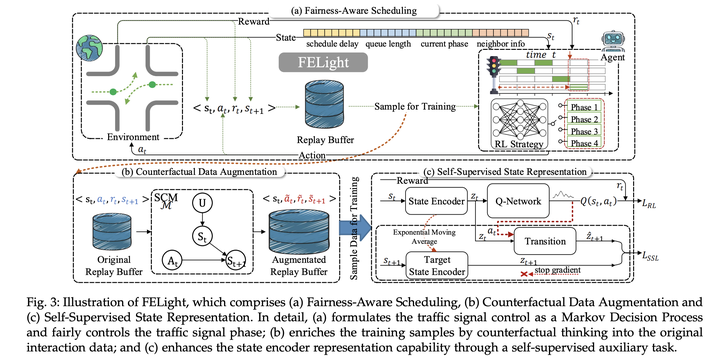
Abstract
Traffic congestion is becoming an increasingly prominent problem, and intelligent traffic signal control methods can effectively alleviate it. Recently, there has been a growing trend of applying reinforcement learning to traffic signal control for adaptive signal scheduling. However, most existing methods focus on improving traffic performance while neglecting the issue of scheduling fairness, resulting in long waiting time for some vehicles. Some works attempt to address fairness issues but often sacrifice transport performance. Furthermore, existing methods overlook the challenge of sample efficiency, especially when dealing with diversity-limited traffic data. Therefore, we propose a F airness-aware and sample- E fficient traffic signal control method called FELight. Specifically, we first design a novel fairness metric and integrate it into decision process to penalize cases with high latency by setting a threshold for activating the fairness mechanism. Theoretical comparison with other fairness works proves why and when our fairness could bring advantages. Moreover, counterfactual data augmentation is employed to enrich interaction data, enhancing the sample efficiency of FELight. Self-supervised state representation is introduced to extract informative features from raw states, further improving sample efficiency. Experiments on real traffic datasets demonstrate that FELight provides relatively fairer traffic signal control without compromising performance compared to state-of-the-art approaches.